Following The Film Stage’s collective top 50 films of 2023, as part of our year-end coverage, our contributors are sharing their personal top 10 lists.
From an industry standpoint, 2023 was eventful. We witnessed concurrent strikes, widespread film festival upheaval, Universal besting Disney at the box office, and much more. (I recommend Matt Belloni’s The Town podcast to keep up with this side of town.) On the indie biz side, this was a year in which I saw two small films succeed utilizing a method I long thought dead (or at least on life support): that being good old-fashioned four-walling. Al Warren’s Dogleg and Case Esparros’ The Absence of Milk in the Mouths of the Lost both captured the momentum of cross-country film touring with in-person Q&As. Distributor Utopia has mounted a similar touring strategy for Sean Price Williams’ directorial debut The Sweet East.
When it comes to the films themselves, my friend, filmmaker Tyler Taormina, likes to posit that there were no real “bangers” this year. To Tyler, I quote a tweaked Fantastic Mr. Fox line: “I understand what you’re saying, and your comments are valuable, but you’re wrong.” Some proper bangers can be found on my top 10, starting at number five. There will be good movies every year—we know this. But a healthy ecosystem is one in which quality films find audiences across different genres from a swath of budget ranges—that feels like an increasingly distant target. To that end, I find this angry manifesto from designer Tibor Kalman to be remarkably prescient over 25 years later. The main difference from 1998 to now is that those “cracks in the wall” Kalman mentions are harder to locate. But they’re there, and I can’t help but be optimistic that “lunatic” artists and patrons of the arts will continue to find their ways to one another.
Honorable Mentions: Fallen Leaves, Oppenheimer, Smoking Causes Coughing, The Sweet East, “The Wonderful World of Henry Sugar”
10. Master Gardener (Paul Schrader)
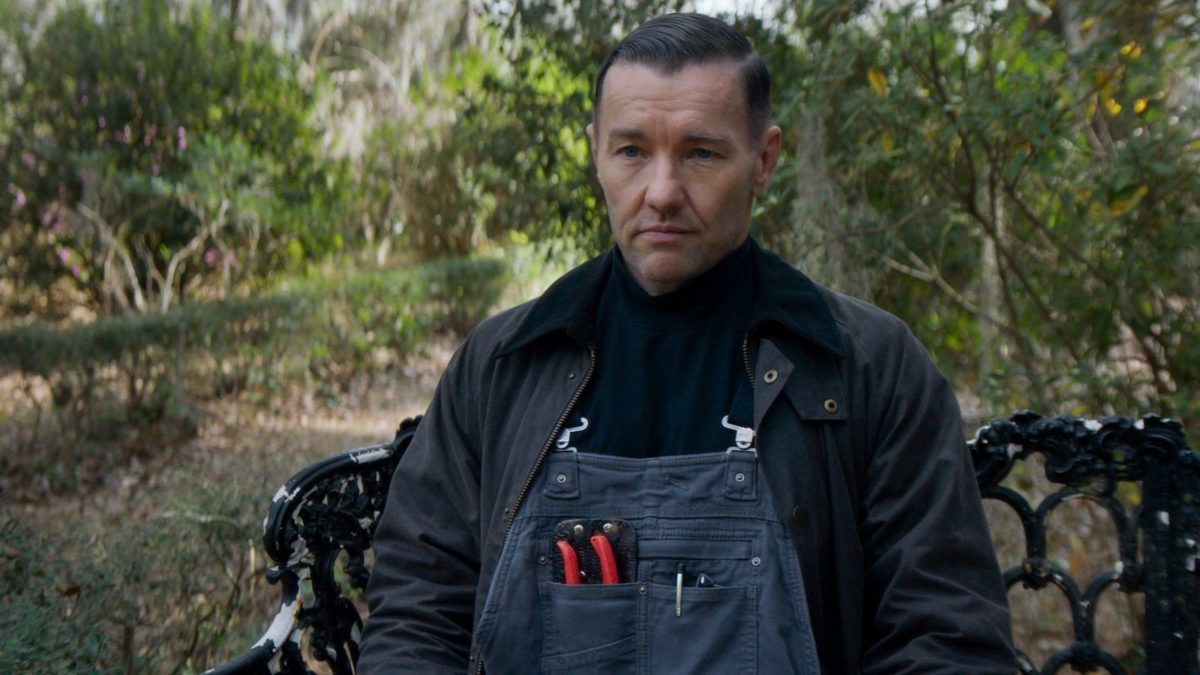
I had trouble with this number 10 spot, slotting in a few films that never felt right. In the end, I had to go with my boy, Schrader. When someone is your boy—on and off the field—their less lauded efforts tend to stick out and become personal favorites over time. Master Gardener feels like Schrader paring down his recent preoccupations to their barest elements. Joel Edgerton is a perfect fit for his “man in a room” dealing with lingering guilt, an intense conviction visible within those beady eyes. I understand Master Gardener might be a movie for Schrader-heads alone, but as a charter member, I’m thrilled he’s still making distinctive films at this pace at his age.
9. Anatomy of a Fall (Justine Triet)
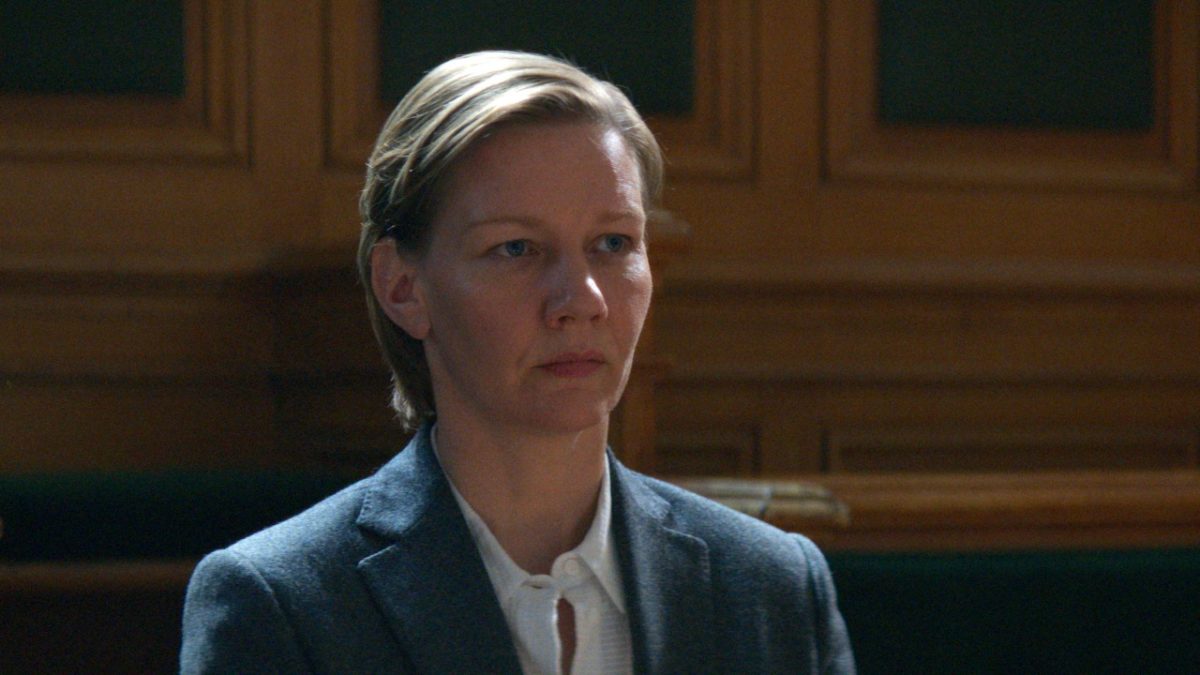
Did she do it or not? The press tour for the film seems to indicate the question is important for audiences, but director Justine Triet says it’s firmly beside the point. There are cracks in Triet’s position. Pondering the guilt or innocence of Sandra Hüller’s author character feels necessary to properly evaluate her son’s actions in the film’s final moments. But Anatomy of a Fall is better because of this. The film’s probing into the roles of an artist couple is aided by a dash of lurid true crime allure. A film critic friend told me he wishes this film was 10 percent better and that metric feels right. But what we do get is still a clear highlight in a strong year.
8. Killers of the Flower Moon (Martin Scorsese)
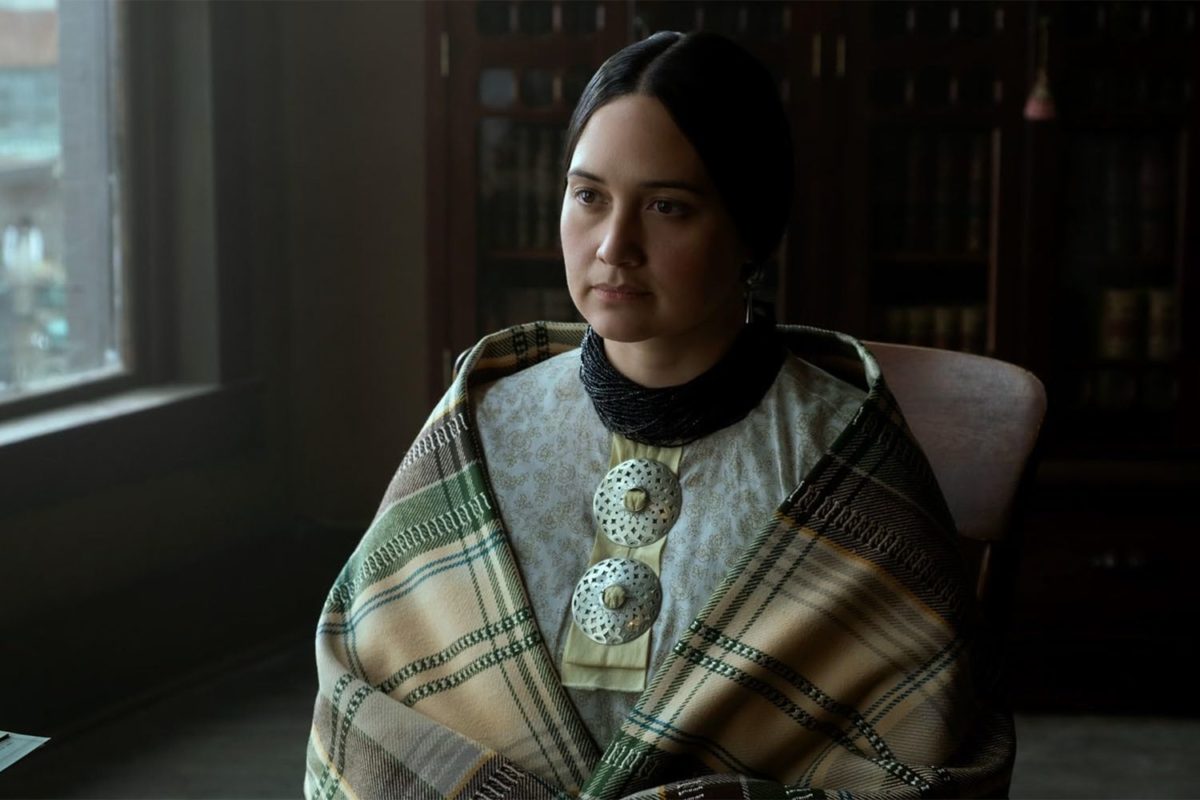
Any year with both a new Scorsese and Schrader is to be celebrated, and while Killers of the Flower Moon is flawed, there is plenty within the extended runtime to inspire thoughtful debate. The combination of Osage customs with Catholicism draws to mind the Buddhism mixing with Christianity in Silence. Production designer Jack Fisk lends his expertise to a Scorsese production for the first time, after decades of working with the absolute best. Looking at another fall movie helps illustrate what Scorsese brings to period pieces. George Clooney’s The Boys in the Boat is an airless, paint-by-numbers prestige drama that lionizes the men and events of the past without question. Whereas Scorsese and editor Thelma Schoonmaker allow a certain messiness to infect their frame, something essential for making the past feel alive and vital to the present.
7. Showing Up (Kelly Reichardt)
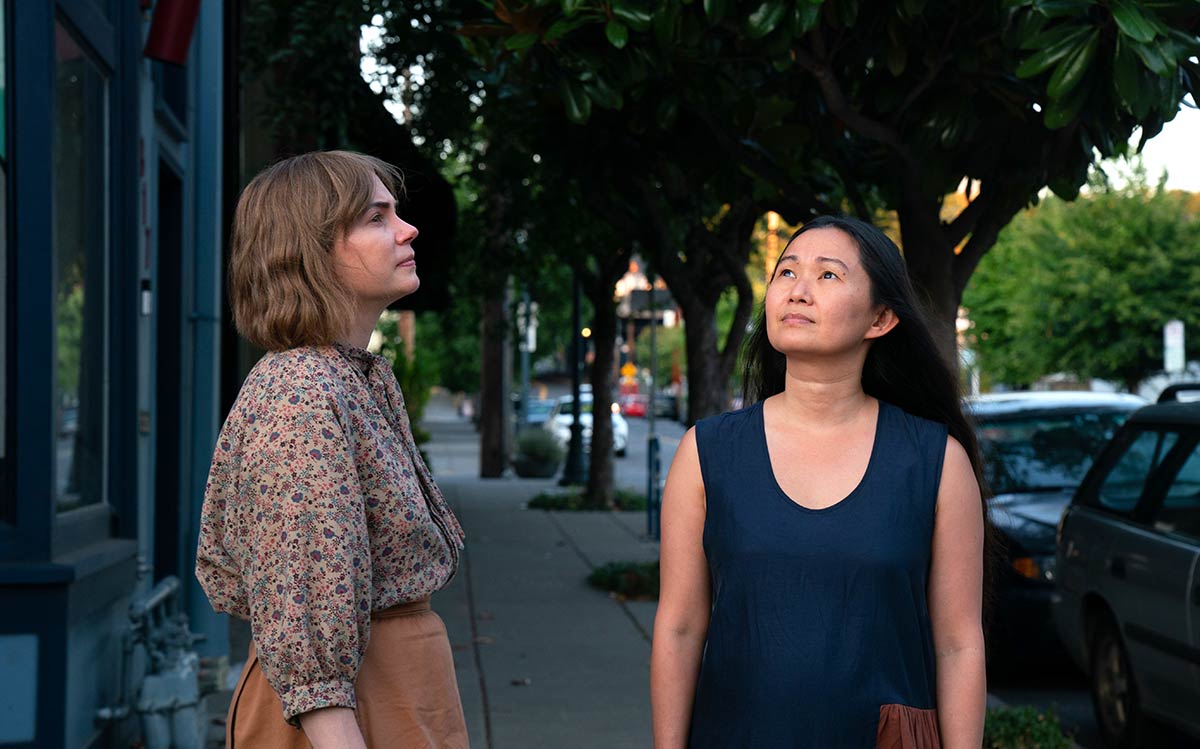
Stakes in a Kelly Reichardt movie are a moving target; life and death in Wendy and Lucy, First Cow, and Meek’s Cutoff, and less dire in others. But Reichardt treats it all with equal importance. Those who say Showing Up isn’t about anything fail to understand the inherent stakes in a small gallery opening for a working-class artist. The opportunity to court a possible break cannot be overlooked for Michelle Williams’ struggling sculptor Lizzy. After Reichardt watched Williams in FX’s Fosse/Verdon she granted her more freedom on set, and what Williams delivers in return is a standout performance of the year.
6. The Holdovers (Alexander Payne)
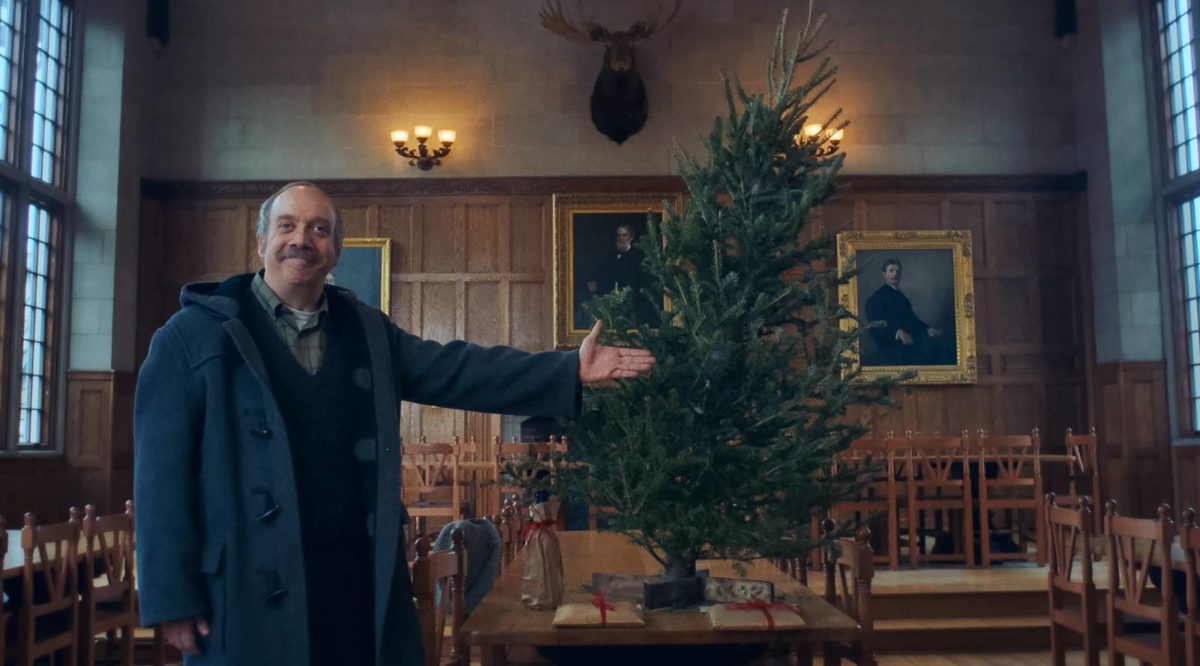
Don’t let the ever-growing community of Downsizing champions hear the “comeback” chants for Alexander Payne this year. The Holdovers isn’t breaking new ground but not every film must. Payne steadies David Hemingson’s script with mostly unsentimental direction (although he has softened over time). He is unafraid to portray Giamatti’s bitter Paul as a grade-A jerk for much of the film’s runtime, whereas a less secure director might’ve nodded to Paul’s humanity sooner. Unfazed opposite Giamatti, first-timer Dominic Sessa is a major discovery and Da’Vine Joy Randolph brings raw emotion to a grieving cafeteria lady in minimal airtime.
5. May December (Todd Haynes)
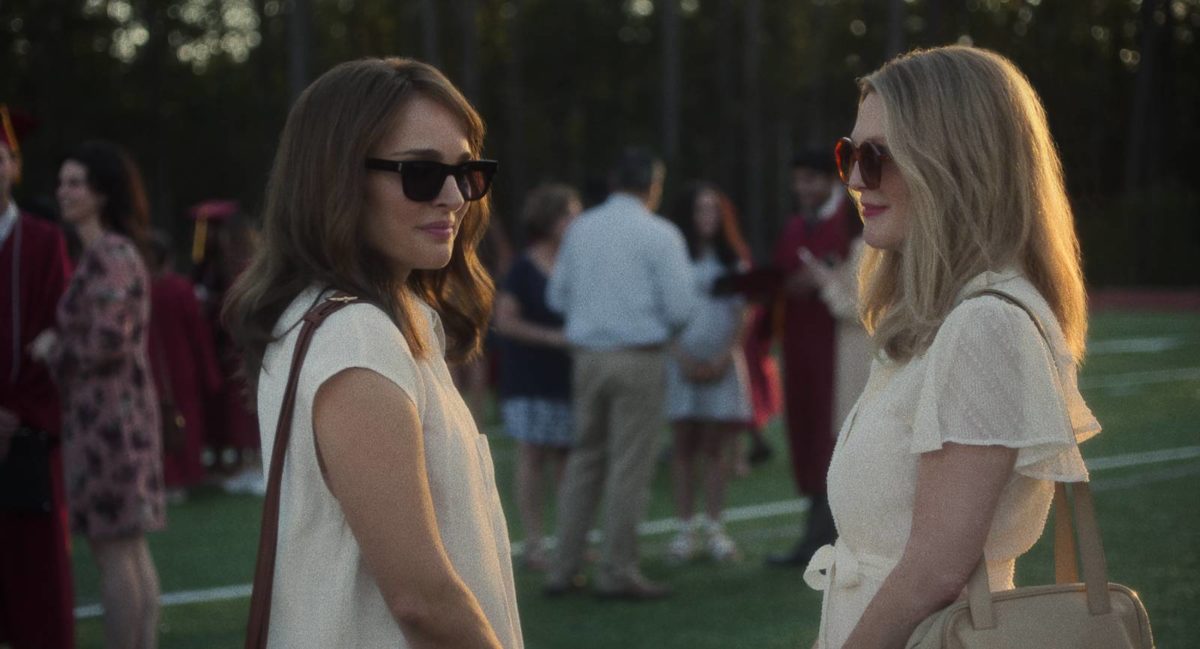
Some may wish this film was campier, but I find that too easy a critique—it’s simple to wish something was “more” or “less” this or that. But threading a needle, that is the true sign of an artist at work. Like his two co-leads, I hadn’t seen Charles Melton in Riverdale, and find his role here as Joe a revelation. After Natalie Portman’s Elizabeth gets under Joe’s skin, he can’t sleep, abuzz with questions for his wife Gracie (Julianne Moore). In this sequence, I found myself wishing that Joe would avoid re-litigating his past. He has a loving wife and teenage kids. Isn’t that enough? Wouldn’t unearthing how he got to his present position blow up both the good and bad in his life? I was mildly horrified by my initial reaction, and bring it up to illustrate the various readings May December actively courts. May December is an entertaining, funny picture with endless depth, and Haynes and team ensure it all plays out effortlessly.
4. Unrest (Cyril Schäublin)
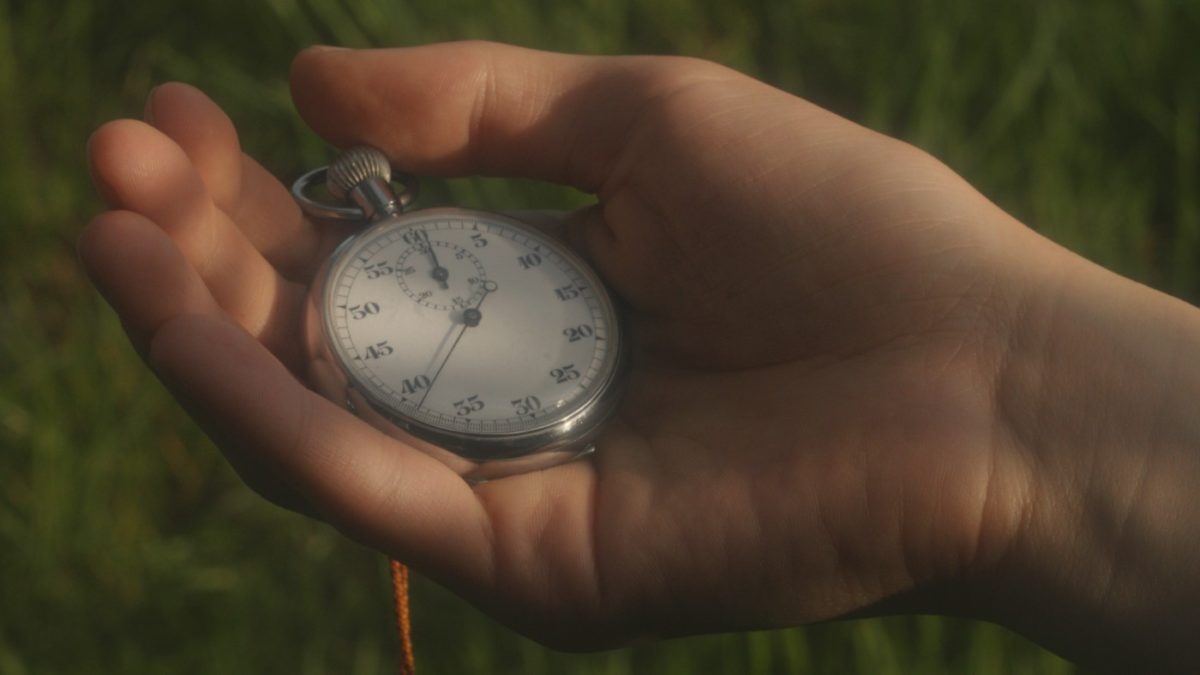
Overtly political films are often angry, loud, or preachy. Unrest is none of these, opting instead for a playful look at how a band of anarchists and the industrial capitalism that drives a small Swiss town’s watchmaking industry ultimately can’t coexist. Here a romance brews between anarchist cartographer Pyotr and a factory worker (stunning non-professional Clara Gostynski). This is a clever, beautifully-shot film, and it was a joy to exist within the world Schäublin crafts for a too-brief 93 minutes.
3. Pacifiction (Albert Serra)
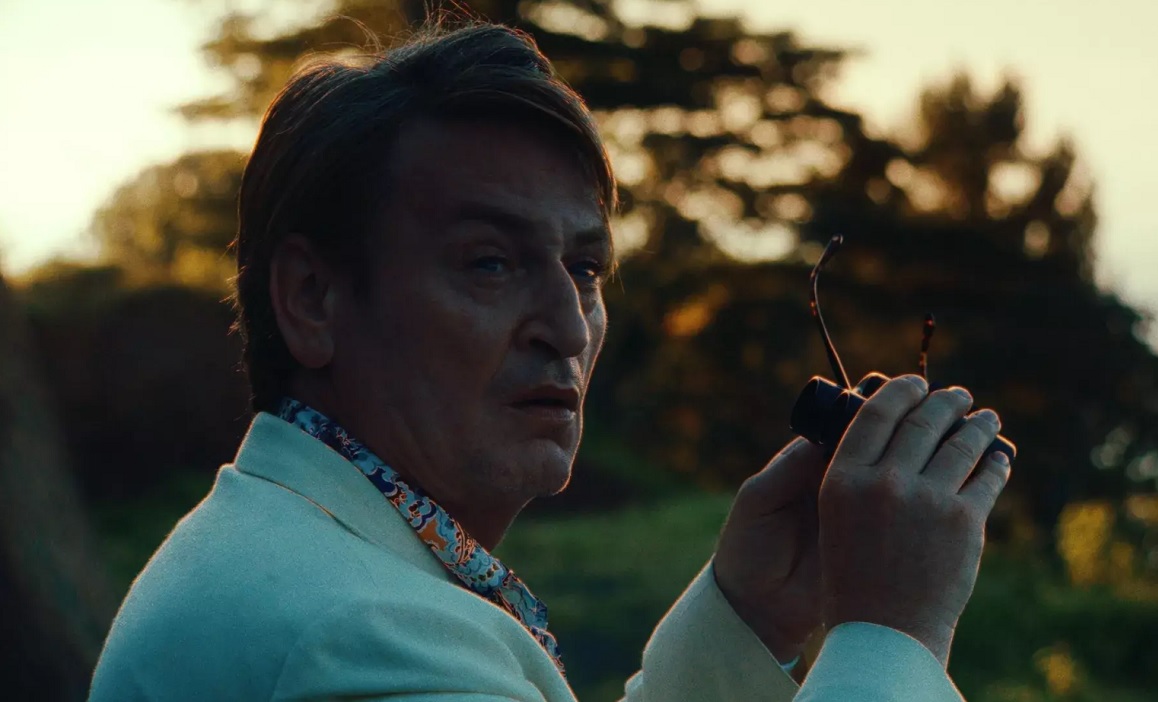
This film was initially a little lower on my top 10, primarily due seeing it way back at AFI Fest 2022. Thankfully, I just rewatched it at the newly-reopened Egyptian Theatre in Hollywood. It immediately skyrockets into a top three slot. With his collaborations with cinematographer Artur Tort, Serra has overtaken Michael Mann as the premiere digital stylist working today. Benoît Magimel is enrapturing as a government figure who must constantly talk without all the facts to maintain a thread of control over French-controlled Tahiti. An added bonus is Serra in Q&As. At that AFI Fest screening, the moderator told him this was the last question, and Serra responded by answering for over 10 minutes—yes, he filibustered the Q&A. Serra is a force and with that comes both admirers and detractors in high places, consider me an admirer from a low place.
2. Godland (Hlynur Pálmason)
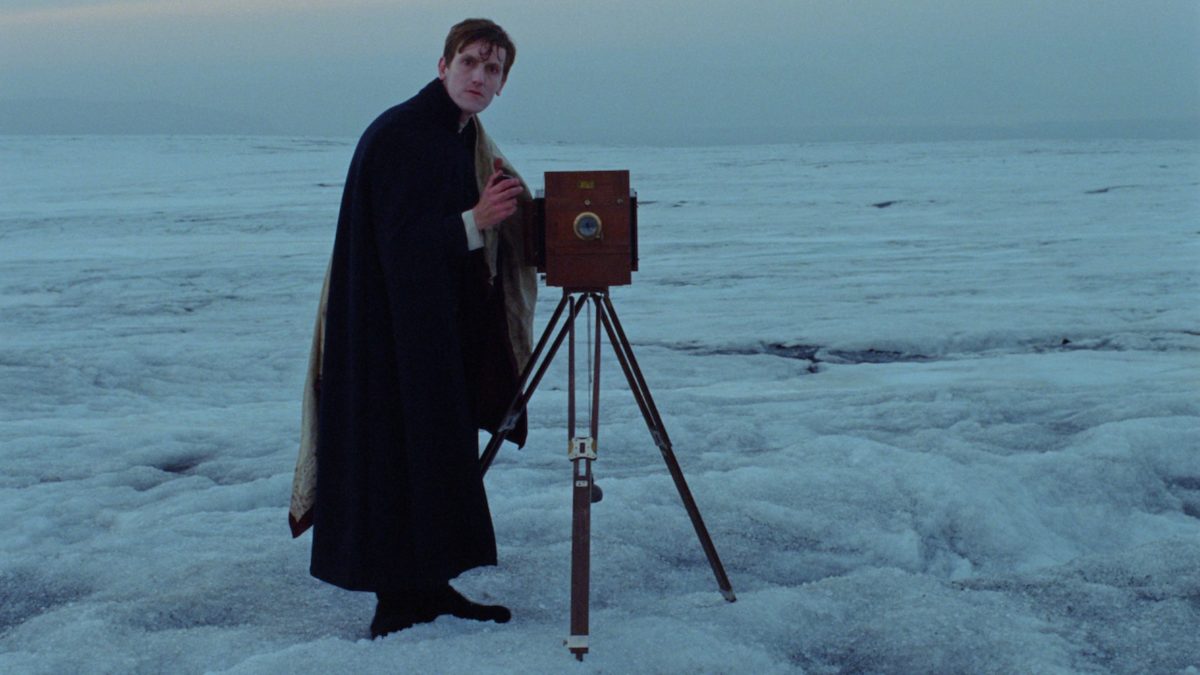
Ethan Vestby’s “muscular” descriptor in his review for this site is a phrase I keep returning to with Godland. This is filmmaking of a Herzogian nature, something oft-imitated, but narrative scope is often lacking in those other efforts. Pálmason’s beautiful-yet-terrifying vision paints late 19th-century Iceland as an unforgiving landscape primed to swallow anyone up who displays the smallest sign of weakness. The second half shows that humans pose the same threat to any outsider appearing with those deficiencies. Young Lutheran priest Lucas (Elliott Crosset Hove) never stood a chance, his fate written long before he accepted the task to bring the gospel here from neighboring Denmark. In Godland, the dangers of nature and men are distractions though from the true threat, which is always an internal one. “Pride goeth before a fall,” the proverb reads, something the arrogant Lucas might’ve realized had he taken the time to open his Bible.
1. Asteroid City (Wes Anderson)
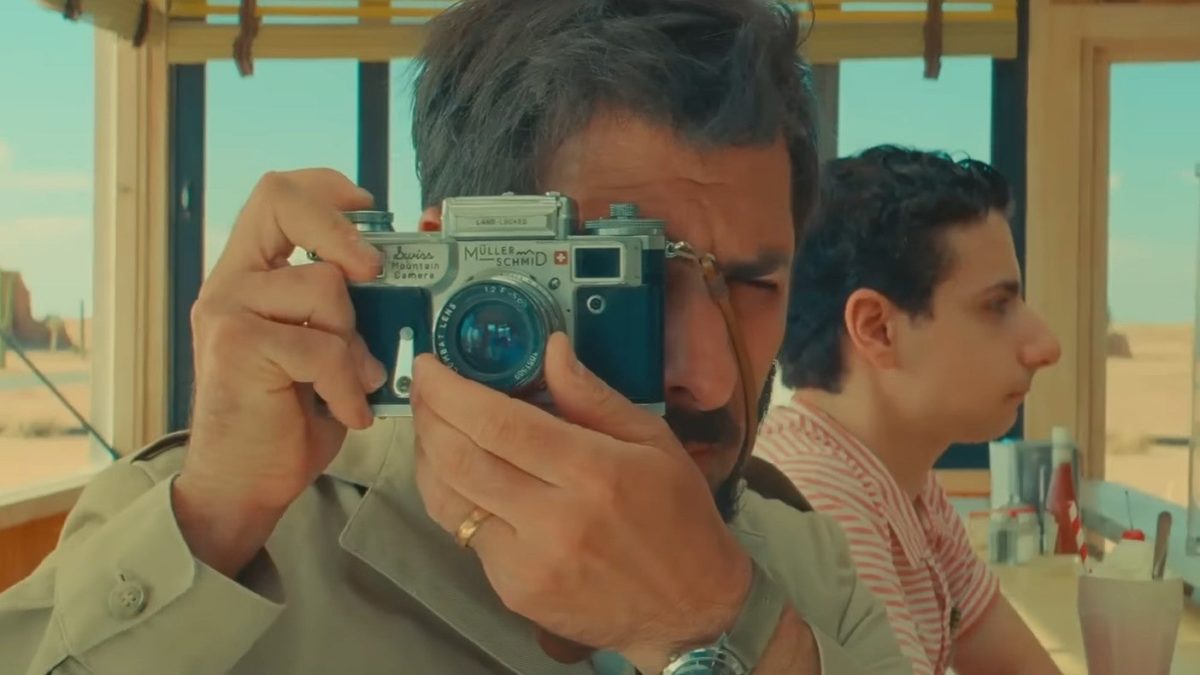
Sometimes with a new work from an artist you love, you’re nervous, afraid this is the one where they screw up and disappoint you. When it’s clear that they nailed it, an immediate relief surges through you. In Asteroid City, that relief occurs right after Bryan Cranston’s black-and-white intro gives way to beautiful color shots of a train chugging through the desert as “Last Train to San Fernando” blasts. After the uneven The French Dispatch, Wes Anderson is back in 2023, with this masterpiece alongside “The Wonderful World of Henry Sugar” and the other Roald Dahl shorts. I have a difficult time with the claims of a lack of human emotion in Anderson’s recent work. Film is a visual medium and as such there are many avenues for delivering emotion: this can be through music or the pairing of two images together in an edit. Anderson has always leaned on these more subtle methods. I was delighted to find Anderson flexing, choosing to frame the emotional climax of the film through a few layers of artifice. With this conversation between stage actors played by Jason Schwartzman and Margot Robbie, Anderson seems to be saying that this is all artificial and crafted and while you understand that as a viewer, you’re still going to be swept up in the emotion anyways—isn’t that magical? Yes, Wes, it is.
